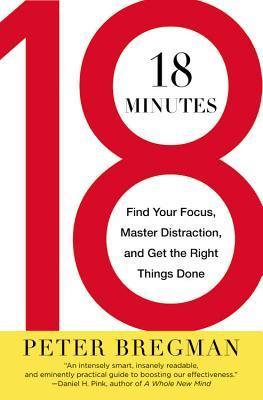More on this book
Community
Kindle Notes & Highlights
Read between
April 11 - April 30, 2025
There are many time management books out there that try to teach you how to get it all done. But that’s a mistake. Because it’s impossible to get it all done.
It’s especially hard to stop when you’re invested in being right, when you’ve spent time, energy, emotion, and sometimes money on your point of view.
Listening is the perfect antidote to momentum since it doesn’t commit you to any point of view.
Reducing your forward momentum is the first step to freeing yourself from the beliefs, habits, feelings, and busyness that may be limiting you.
What’s interesting is that, apparently, a five-second pause is all most people need to realize they’ve made a mistake.
A brief pause will help you make a smarter next move.
This life is a marathon, not a sprint. In fact, each day is a marathon. Most of us don’t go to work for twenty minutes a day, run as fast as we can, and then rest until the next race. We go to work early in the morning, run as fast as we can for eight, ten, twelve hours, then come home and run hard again with personal obligations and sometimes more work, before getting some sleep and doing it all over again.
When we rest, we emerge stronger.
I’m not talking about a stop as much as a ritual of self-imposed brief and strategic interruptions.
Regular rest stops are useful interruptions. They will refuel your body and mind, naturally reorient your life toward what’s important to you, and create the time and space to aim your efforts more accurately.
Because until you test your assumptions, you don’t know for sure whether they’re right.
The world changes—we change—faster than we tend to notice. To maximize your potential, you need to peer through the expectations that limit you and your choices. You need to see the world as it is—and yourself as you are.
The first question we ask when we meet people is inevitably, “What do you do?” We have become our work, our professions. Connected 24/7 via BlackBerry, obsessively checking email and voice mails, we have left no space for other parts of ourselves.
Who am I if you take away my work? That’s a question to which we’d better have a solid answer. And yet many of us don’t. Fortunately, once we realize this we can do something about it.
And if you still believe that doing nothing but work is necessary to support your lifestyle, then it’s worth looking at ways to moderate your lifestyle so you don’t kill yourself trying to maintain it.
Life isn’t just about some of you; it’s about all of you. Don’t negate, integrate.
It’s easy to admire Susan. But it’s far more interesting to be transformed by her. “There is grace,” a friend once wrote to me, “in being molded by your own gifts.”
If we’re lucky, we have parents who encourage us. Nothing really replaces a mother or father who believes in you. But even if you don’t have parents who believe in you, it’s important to have someone. Someone you trust enough that when they offer criticism, you know it’s to draw you out more fully, not shut you down even partially.
Don’t settle for being less than you are. It won’t serve others and it won’t serve you.
And he was pointing out a habit that costs many of us tremendous opportunity. Our reaction to an event creates an unproductive outcome.
The most important part of the chain, arguably the only part that really matters, the outcome, is collateral damage from our reaction. It’s not intentional. We’re reacting to the event. The outcome is simply fallout.
My uncle offered an alternative chain. Focus on the outcome, then choose your reaction. event → outcome → reaction
When an unsettling event occurs, pause before reacting. In that pause, ask yourself a single question: What is the outcome I want? Then, instead of reacting to the event, react to the outcome.
Knowing what outcome you want will enable you to focus on what matters and escape the whirlwind of activity that too often leads nowhere fast.


